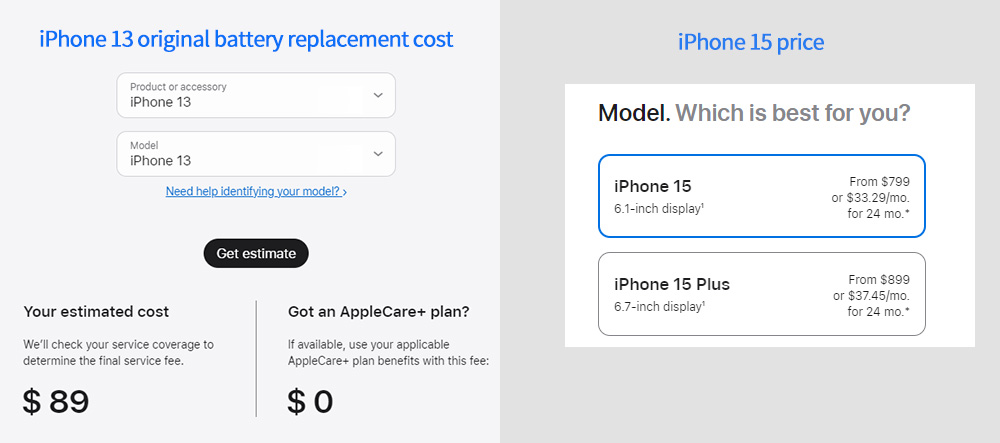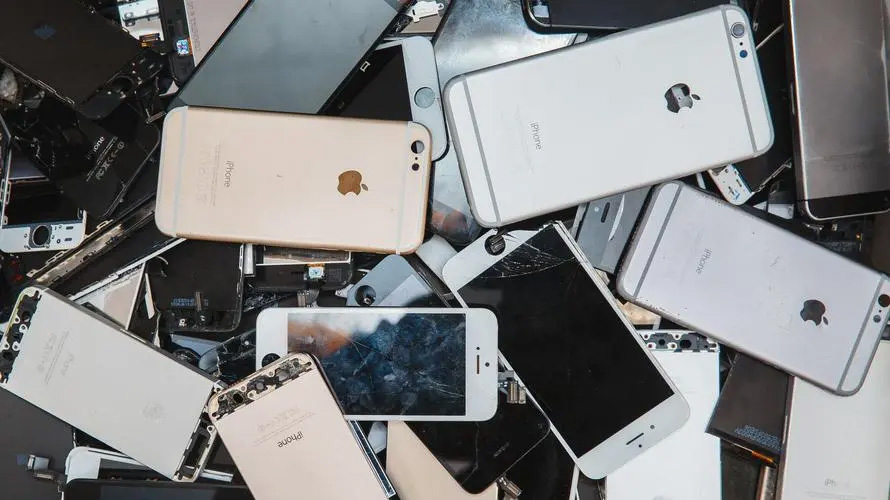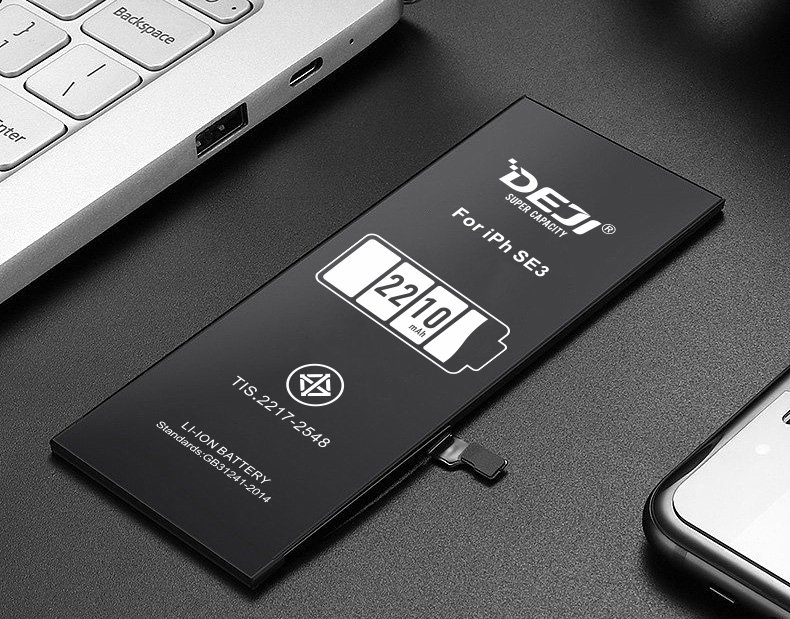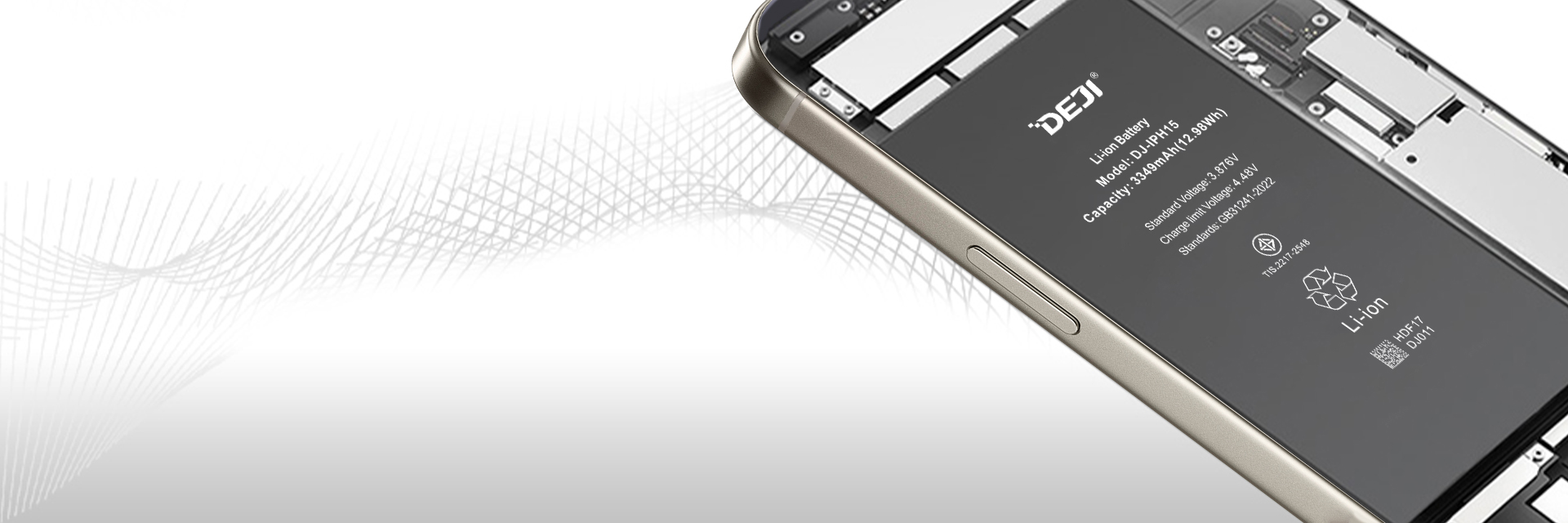Is It Worth Replacing the iPhone Battery? My answer to this question is a resounding "yes." However, oversimplified answers don't fully address common doubts. In this article, I will explain from two perspectives why replacing your iPhone's battery is a worthwhile decision and what type of battery you should consider. I hope this helps bolster your confidence in making the right choice.
Why Suggest Battery Replacement Instead of Getting a New Phone?
I often advocate for battery replacement over buying a new iPhone. This approach not only saves money but also contributes to environmental conservation.
Cost Savings
Before we purchase any consumer product, the first consideration is its price and the costs involved.
Suppose you currently own an iPhone 13, and the battery life is about to expire. If you're unsure whether to replace the phone or the battery, let's first look at the prices on the Apple website for the iPhone 15 and the cost of replacing the iPhone 13 battery.
The iPhone 15 is priced at $799, while the cost of replacing the iPhone 13 battery is $89. The cost of replacing the battery is 1/9 of getting a new phone.

If you opt for the "trade-in" option, Apple needs to assess the wear and tear of your old phone. The maximum discount you can get is $370, meaning you can get a new phone for $429. This is the most significant discount you can obtain. The cost of replacing the battery is approximately 1/5 of getting a new phone.
Yes, as you can see, replacing the iPhone battery is much more cost-effective than purchasing a new phone. Especially in times of economic downturn or high inflation, saving unnecessary money for daily expenses is a wise choice.
Situations Warranting a New Phone
However, there are instances, such as when your phone has sustained substantial damage, where purchasing a new phone might be more justifiable than replacing parts.
Environmental Protection
The production and improper disposal of mobile phones significantly harm the environment. By reducing the frequency of phone replacements, we contribute to environmental protection.
Wonderopolis once wrote in the blog "How Mobile Phones Affect Ecosystems" that these minerals will produce useless waste during the mining process, also known as "tailings". Although they look similar to soil, they are actually full of toxicity.

In 2020, the Global E-Waste Statistics Partner (GESP) published a report titled "2020 Global E-Waste Monitoring." According to the report, the total global electronic waste generated in 2019 amounted to 53.6 million tons, marking a 21% increase over the past five years. It is anticipated to reach 74 million tons by the year 2030.
Last year, in an article on eurekalert, it was mentioned that approximately 5.3 billion mobile phones are expected to become electronic waste in 2022.
These alarming figures highlight the environmental impact of our electronic device disposal. Recycling helps, but with low rates in many countries, much of this waste ends up untreated. Environmental Responsibility: What to Do with Old Cell Phone Batteries
All these facts are happening, and our contribution to environmental protection lies in extending the use of iPhones until they are no longer functional. Although lithium batteries also pose a threat to the environment, the harm is much smaller compared to the impact of an entire phone.
Choosing Between iPhone Original Batteries and Third-Party Batteries
It's time to replace the battery on your iPhone, and besides Apple's original iPhone batteries, there are batteries provided by third-party manufacturers in the market. How should you make the choice?
Many people say original batteries are the best, and that's certainly true. Original batteries are perfectly matched to the phone, providing us with maximum peace of mind. If you are picky about the device usage experience, the original battery is the right choice.

So, if original batteries are the best, why choose third-party iPhone batteries?
In fact, the production of mobile phone lithium batteries does not fall into the high-tech range. The manufacturing process of high-quality third-party batteries is not necessarily worse than that of original batteries, which means that the quality gap may be very small.
The difference between third-party batteries and original batteries lies in price and capacity. Taking the iPhone XS battery as an example, the official Apple price is $89, while the DEJI brand battery is priced at $37. In terms of capacity, the iPhone XS original battery has a capacity of 2658 milliampere-hours, while DEJI offers a high-capacity iPhone XS battery with 3210 milliampere-hours. Reliable third-party manufacturers offer iPhone batteries at a lower price than the original, with higher capacity.
Conclusion
In summary, battery replacement is a cost-effective and environmentally friendly choice. To extend the device's lifespan and reduce environmental impact, we have a responsibility to make wise decisions in consumption. Through such actions, we can more rationally manage our technology products and contribute to sustainable development.
When choosing a battery, original batteries, and third-party batteries each have their pros and cons. Original batteries have strong compatibility, ensuring a good device usage experience, but they come at a higher price. Qualified third-party batteries may not significantly differ in quality from original batteries, but they are more budget-friendly. Some brands also offer high-capacity options, further extending the lifespan of your phone.
When purchasing third-party batteries, choose a reliable manufacturer to ensure product quality and safety. Compare the prices, capacities, and other factors of original batteries and third-party batteries, and make a wise choice based on your personal needs.
I hope this explanation helps you better understand why replacing the iPhone battery is a worthwhile investment.
 sales@batterydeji.com
sales@batterydeji.com




